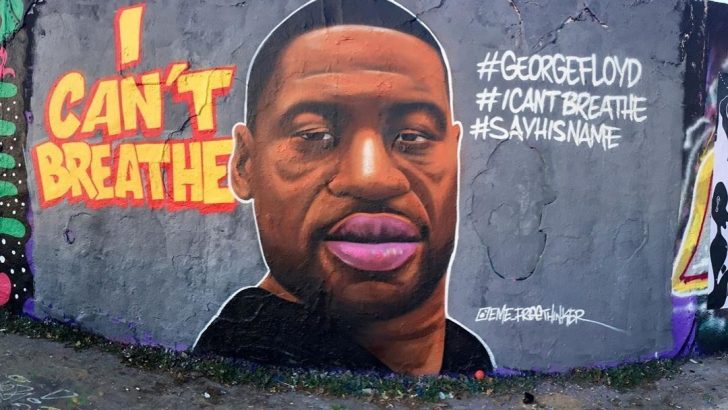The appalling behaviour of some of the American police which we’ve seen in recent times is, it seems, partly because of their very powerful trade unions. Derek Chauvin, the police officer who stands accused of the killing of George Floyd, had already faced at least 17 complaints of misconduct.
Yet his career flourished because the American police unions ferociously defend the men and women in their force, making it almost impossible to sack even those who have been at fault repeatedly.
If nobody is ever fired for indiscipline or misconduct, then, inevitably, bad apples will thrive and tragedies and malfeasances will occur. People in positions of power – and any individual with a gun in his holster and a licence to use it is in a position of power – must be held accountable.
Power
Looking back nearly 100 years, I think we should be proud of the way the Garda Siochána – an unarmed police force – was established in Ireland in 1922-23. Despite the fact that the country had been bristling with guns, and many willing to use them, Kevin O’Higgins, the Minister for Justice, insisted that the gardaí should be unarmed.
He believed an armed police force would lead to more shooting in the streets: the gardaí’s most powerful weapon, paradoxically, could be that they were defenceless. This would make the population at large more sympathetic to them – and would thus lead to the excellent civic principle of ‘policing by consent’.
They sometimes were attacked by those who did not accept the Free State, but the unarmed policy stayed, and helped to create a constabulary which was accepted by the people, in a way that the RIC never had been (although quite a few former RIC men became Gardai, and made the transition successfully).
The first Garda Commissioner was Eoin O’Duffy – who later became the leader of the Blueshirts – and he set out a high moral standard for the behaviour of the new force. A garda, he told the recruits, should “have a spirit of patriotic devotion and selflessness” – but he was also a guardian of all the people, not any one faction of it.
Athleticism – a background in the GAA – was favoured, as was abstinence from alcohol: they got extra points if they had a pioneer pin! The Cadetship, writes Fearghal McGarry in his superb biography of O’Duffy, was open to single young men who were educated, possessed 24 teeth, and had a sound moral outlook. Discipline was enforced and a ‘knowledge of life’ taught.
A police force is not just about protecting the jobs of the cops…”
Great care was taken in the selection of recruits, so that they would observe ‘ideals of service’, with a “clean, moral outlook and temperate habits…and pride in their calling”. Trust was emphasised – trust in the state and in the people.
There clearly have been gardaí who have failed to meet the ideals and standards upheld. O’Duffy himself was a flawed character. Yet the Garda Siochána were set on the right path from the start.
A police force is not just about protecting the jobs of the cops: it’s about service to the people and the lawfully elected state, through consent, not guns.
****
Just how deeply do we investigate Elizabeth I?
The Church of England is minded to investigate Queen Elizabeth I’s role in slavery. Well, she was involved up to the hilt with Sir Francis Drake, who was something of a pirate and buccaneer around the Spanish Main.
But wait a minute – does this mean that her role in establishing Trinity College Dublin will be questioned? Slavers funds used to extinguish Papists?
****
In praise of the benefits of shopping…
There’s been a certain degree of snootiness about the folks who, as soon as the shops open again for business, queue up for hours to get to buy a pair of shoes, or a frock or a household gadget.
But shopping and trading add cheerfulness to a city or town, and it’s a social activity as well as a mercantilist one. The wheels of commerce provide gainful employment, and help to fund the state’s exchequer for the common good – health, education, welfare services. Shopping has a beneficial side, though perhaps like wine, or watching TV, it’s best done in moderation.
Religious practice – and pilgrimage – have often included a little shopping on the side. Mont St Michel in Brittany, a place of holiness, has little stalls selling religious artefacts and souvenirs all the way up to the exquisite church at the top: it’s claimed some of them have been on site since the 12th Century.
A boutique adjacent to the lovely Chapel of the Miraculous Medal in the Rue de Bac in Paris does a brisk trade in a wide range of goods (all served by efficient multi-lingual nuns, very nimble on the currency-exchange calculators).
There’s an element of what I call Cromwellite Puritanism about looking down on shopping and commerce. Let the people shop!


 Mary Kenny
Mary Kenny
